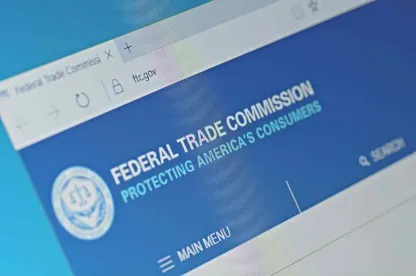The US Federal Trade Commission (FTC) voted July 21, 2021, to repeal a 1995 policy statement that eliminated prior approval and prior notice provisions from most merger settlements. In repealing this longstanding policy—and likely insisting on the inclusion of such provisions in future settlements—the FTC will have significantly greater authority to review and block future transactions of companies who enter into consent orders with the FTC. This policy change will have significant implications for the negotiation of antitrust risk provisions in transaction agreements.
WHAT HAPPENED:
-
In its 1995 Policy Statement Concerning Prior Approval and Prior Notice Provisions in Merger Cases, the FTC announced that it would no longer routinely require prior approval of certain future acquisitions in consent orders entered in merger cases.
-
Prior to this statement, FTC consent orders to settle merger reviews routinely required parties to seek and receive the FTC’s prior approval for future acquisitions in the relevant product and geographic markets at issue in the first challenge/consent order for a 10-year period. In some cases, the FTC also included a prior notice provision obligating companies to notify the FTC of any intended transactions that were not subject to the premerger notification and waiting period of the Hart-Scott-Rodino Antitrust Improvements Act of 1976 (HSR Act).
-
-
On July 21, 2021, the FTC voted 3-2 to rescind its 1995 policy statement, opening the door to requiring prior approval and prior notice provisions in future merger consent orders.
WHAT THIS MEANS:
-
This policy change substantially increases the FTC’s merger enforcement authority for companies that settle investigations with a consent order and become subject to prior approval requirements.
-
Prior approval provisions place the burden on companies to demonstrate that their transactions are not anticompetitive.
-
The FTC can deny approval for these future transactions with very little—if any—limits on its discretion.
-
This differs significantly from the enforcement regime under Section 7 of the Clayton Act, where the FTC has the burden of proving that a transaction will substantially lessen competition or tend to create a monopoly.
-
-
Prior notice provisions require companies to provide the FTC with advanced notice of certain transactions—even smaller transactions that typically would fall under the HSR threshold (e.g., transactions valued below $92 million). The notification requirement increases the likelihood of FTC investigation for these transactions.
-
By rescinding the 1995 policy statement, the FTC may seek to impose such provisions in its orders as a routine matter. It remains to be seen under what circumstances the FTC will insist on prior approval or prior notice (or how broad they will be crafted). In supporting the repeal, FTC Chair Lina Khan stated that the FTC will employ these provisions based on “facts and circumstances of the proposed transaction.”
-
These prior approvals and/or notice provisions, when previously employed, generally lasted for the term of the order—typically 10 years.
-
Generally, the scope of these provisions was limited to the geographic and product market in which the FTC determined that the initial transaction would have anticompetitive effects.
-
-
This new policy will likely complicate negotiations between merging parties and the FTC on consent orders. Merging companies may contemplate making divestitures to resolve FTC concerns with their transaction. In a typical case, the companies and the FTC agree on such divestitures and enter a consent order binding the parties to effectuate the divestitures. The FTC’s insistence on including prior approval and/or prior notice provisions in these settlements may limit companies’ ability to complete follow-on acquisitions. Commissioner Noah Phillips’s dissenting statement warned that the FTC’s renewed used of this “decade-long M&A tax” will deter settlements between merging parties and the FTC. He also criticized the Democratic majority for repealing a “policy without offering guidance as to what will replace it,” which he argues will deter consents and lead to more frequently litigated merger challenges.
-
If the FTC requires prior approval and/or notice provisions in its orders, that can impact parties’ negotiations over the antitrust provisions in transaction agreements. Clients and counsel negotiating such provisions should consider the implications of this policy change.
-
For buyers:
-
The potential for these new provisions materially increases antitrust risks.
-
Previously, deals that create antitrust risk could be remedied narrowly. Buyers could agree to divest a product line or facility, often up to a certain divestiture cap (e.g., a dollar threshold below which the buyer would be required to make divestitures in order to complete the transaction). These narrow remedies gave sellers deal protection, and they gave buyers the certainty that any divestiture would only impact specified assets.
-
Now, buyers will also need to consider that, in addition to the targeted divestitures to resolve a current transaction, the FTC may insist on prior approval or prior notice for future transactions in the same industry.
-
Prior approval and prior notice provisions both can impact the transaction rationale and/or risk profile.
-
If a buyer intends to continue making acquisitions in a specific product-market, it may be more difficult to continue that campaign if the FTC has a prior approval right.
-
A buyer subject to a prior approval order, or a prior notice provision for a non-reportable deal, may create a higher deal risk profile compared to a buyer that is not subject to such an order, which may make the buyer subject to the order less attractive to a seller.
-
For non-HSR reportable deals, FTC approval and/or notice requirements will affect transaction timing.
-
-
-
For sellers:
-
Sellers should consider that deals will have higher antitrust risks if a potential buyer is subject to a prior approval order that applies to a potential new transaction. Sellers should seek to understand whether a potential buyer is subject to a prior approval order.
-
In addition, sellers may push for the buyer’s antitrust efforts obligations to include not only the obligation to make certain divestitures (or a “Hell or High Water” clause), but also may want to include an explicit reference to an obligation to accept the FTC’s new prior approval requirement.
-
-
This policy change also creates differences in an antitrust risk based on whether a transaction occurs in an industry the FTC reviews, versus an industry that the Department of Justice (DOJ) reviews, because the DOJ has not imposed such prior approval requirements.
Will Paige, a summer associate in the Washington, DC, office, also contributed to this article.




 />i
/>i
